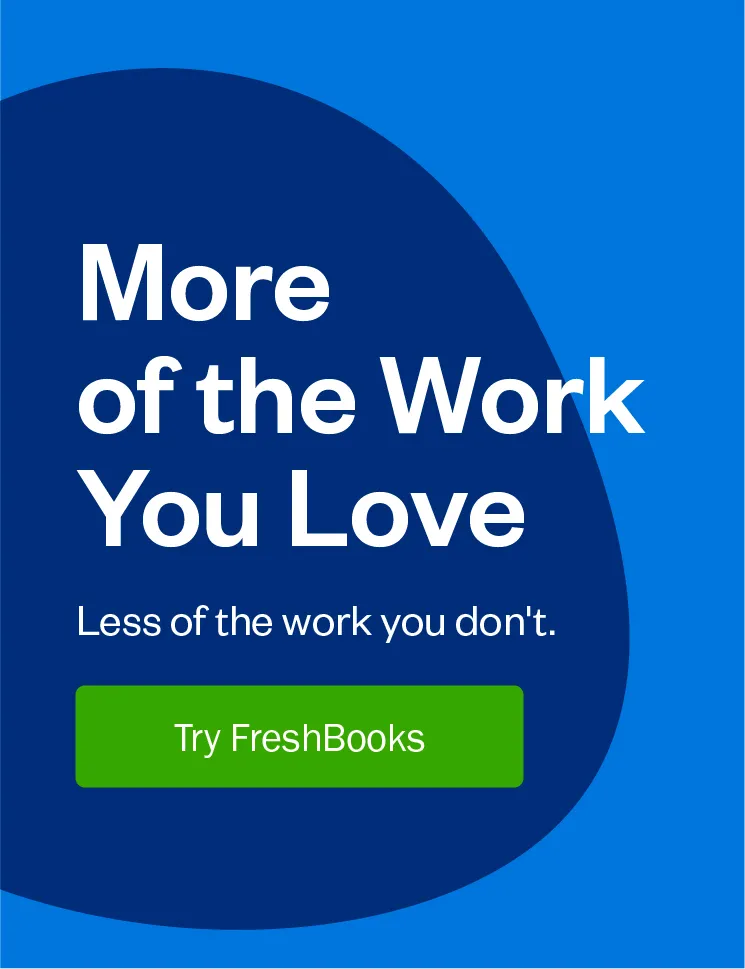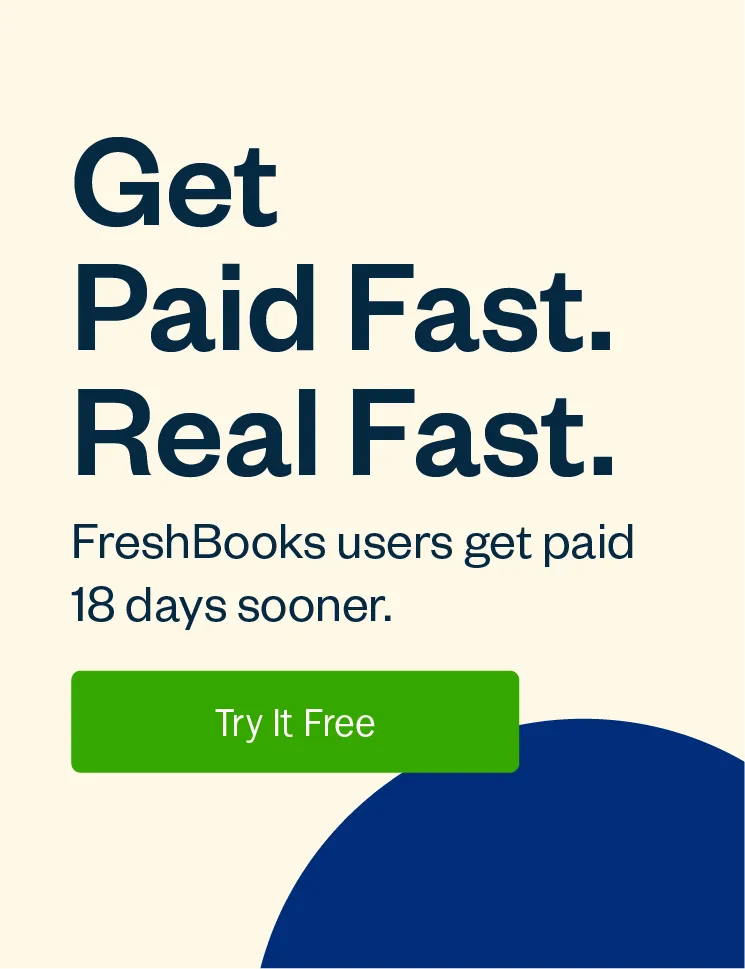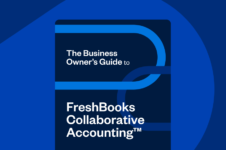Whether you identify as a graphic, UI, or visual designer—or a combination of all 3—you have the potential to run a booming small business with the help of cloud accounting.

Not only do you have skills that companies of all sizes desperately need, you’re more rare than you think.
According to a The Creative Group survey, 45% of advertising and marketing executives said it’s challenging to find highly skilled creative professionals today. That’s your cue.
You’ve got the skills, but do you have a system that ensures you’re as efficient as you can be, provides a place to collaborate with your clients, offers deep insights into your business’s trajectory and, maybe most importantly, helps you get paid quickly?
It may seem like a tall order for an IT solution, but cloud accounting is up for the challenge.
Here’s what it can do for you:
1. Eliminate Bonehead Human Errors
If your current accounting system is an ad hoc solution of your own design, you should know that it’s subject to natural human error. Maybe you forgot to back up your invoice. Or miscalculated your billable hours.
Did you update that invoice number when you used an old one as a template? Your tax calculations are sometimes off. And you never follow up on unpaid invoices. Common mess-ups like these can (and do) happen to everyone.
Cloud accounting eliminates all of them. It takes care of saving and generating sequential invoice and estimate numbers, does the math for you when it comes tallying hours and taxes and even follows up with clients who are tardy to pay. When you have a system designed precisely for professionals like you, silly mistakes are no longer the cost of doing business.
2. Create a Space For Collaboration
Designing visual and user interface (UI) elements for clients is a collaborative experience. It’s important that you have a forum with which to share ideas, ask questions and pass drafts back and forth.
Cloud accounting software allows you to invite your clients and team members to collaborate, including managing and sharing information, files and updates.
You can avoid lengthy email chains and communicate in real-time right in the software. And you’ll have an at-a-glance record of every conversation so everyone is on the same page every step of the way.
3. Make Estimating Simple and Smart
Got an interested client who wants a ballpark cost of a project? As a designer, you could whip up a gorgeous estimate in 10 minutes using InDesign or Illustrator. But what happens to that beautiful specimen once you’ve sent it off?
If you’re like many small business owners, you’ll save it in a folder marked Estimates or label it by the potential clients’ name. Smart—but not as clever as cloud accounting, which will track your estimates with all your other accounting documents so you have a record of when you sent them, when they were viewed and whether they were accepted.
When the project is complete, you can even create an invoice from an estimate in just a few clicks.
4. Measure Your Productivity
Do you measure the number of hours you spent on a project by the severity of your hand cramps and butt numbness? While this is a good visceral marker, it’s not a precise way to understand your efficiency.
The Time Tracking feature of most cloud accounting platforms will help you track your time to the minute, ensuring you never leave money on the table. Plus, when you understand how you much time you spend on specific tasks, you’ll know whether your hourly rates are reasonable—or if you could stand to nudge them up a bit.
With more information about how you spend your time, you’ll find efficiencies that the aches and pains of your profession could never reveal.
5. Do Your Accounting Anywhere
One of the best perks of cloud accounting solutions is the time-saving mobile app that allows you to take care of sending invoices, preparing estimates and recording expenses anytime, anywhere. All you need is your laptop, tablet, or phone and you have all your accounting information and functions at your fingertips.
Send an invoice from the car the second you get that “Thanks, we’re done!” email from the client. File an expense before you even leave a store or restaurant. Take look at who owes you money anytime you like. Simply log in wherever you are. Cloud accounting makes invoicing and expense-management a series of small tasks you can manage instead of one huge task.
6. Get Paid Faster
Want clients to pay you faster? Make it easier for them to do it. Most cloud accounting platforms allow your online payments via PayPal, Stripe, credit or debit card, bank transfers and e-checks—straight from a link on your invoice.
FreshBooks’ research indicates that you’ll get paid 11 days faster when you accept credit cards online. And since you’re being paid through your cloud accounting platform, it’s easy to keep track of who’s paid and when. No need to manually file earnings anywhere.
7. Manage Your Expenses
From receipts for software and SaaS (software as a service) subscriptions to travel to meals with clients, a small business owner can have a lot of expenses to manage. And with more purchases being conducted online, you now have to keep track of both paper and digital receipts.
Where does it all go? Cloud accounting software provides an ingenious expense manager that not only records it, but organizes it too. That means tax time is a snap (it’s all in one place) and you have at-a-glance access of your actual profit vs. loss.
No more wondering how much you really spent until you total it up at the end of the year. You can even enter recurring expenses such as rent or phone plans so you don’t have to manually enter it every month.
8. Do a Deep Dive into Your Business
What’s your business’s total profit so far this year? Which clients account for most of your earnings? Which clients pay on time and which ones are chronically late? How much do you have in outstanding invoices right now?
If you have a cloud accounting solution, all it takes to answer those questions is a couple of clicks. That’s because a good reporting system will help you take the pulse of your business anytime. You’ll have a bird’s eye view of all your projects, empowering you to make smart business decisions you wouldn’t otherwise be able to make.
In Conclusion
It’s worth the cost of cloud accounting alone.
Small business owners can use all the help they can get staying organized, finding efficiencies and staying on top of their accounting.
Cloud accounting software is a game-changer for creative professionals in particular, thanks to its collaboration and reporting features, among others.
What can it do for you?

Written by Heather Hudson, Freelance Contributor
Posted on February 8, 2018

 You’re Comfortable with Word and Excel—So why change?
You’re Comfortable with Word and Excel—So why change?
 There’s a Better Way to Track Your Expenses
There’s a Better Way to Track Your Expenses




